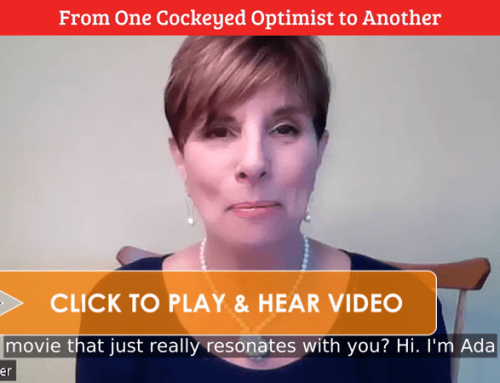 The prevailing wisdom in mediation is that we start with where our clients are (the present) and assist them as they move forward (the future). We don’t spend much time looking back. Not that what preceded before coming to the mediation table doesn’t matter, but there is an inherent danger in focusing on the dialogues of “Shoulda, coulda, woulda”; “You did . . .”; ‘‘You didn’t . . .”; “If only….”; “I might have. . .” The danger is that if the parties stay stuck in the past, these dialogues can stymie the process.
The prevailing wisdom in mediation is that we start with where our clients are (the present) and assist them as they move forward (the future). We don’t spend much time looking back. Not that what preceded before coming to the mediation table doesn’t matter, but there is an inherent danger in focusing on the dialogues of “Shoulda, coulda, woulda”; “You did . . .”; ‘‘You didn’t . . .”; “If only….”; “I might have. . .” The danger is that if the parties stay stuck in the past, these dialogues can stymie the process.
Having said that, there is a second prevailing wisdom in mediation that what happened in the past DOES matter. It certainly matters to the individuals who have come to you for guidance. And often the weight of that matter can inhibit or even prohibit them from being able to “be present” in the mediation.
In these cases, a moderate rehash (and I mean moderate) may be necessary in order to make sense of things and start putting it in some sort of perspective. Therapy is often the best place to accomplish this, but if that opportunity is not available, the mediation may be the only place for this to happen.
Sometimes the mediator’s most important role is providing a forum in which to be heard.
I recall a client who was the main income earner for the family. He was very angry and almost belligerent during the mediation. The arrangement had been that he would work and the wife would be the stay-at-home mom, but looking back, it didn’t seem like such a great idea to the husband. They argued about why they made that decision, disputed over an ”agreement” that the wife was supposed to go back to college and earn her degree while the kids were still young, etc. etc. All of this went nowhere fast.
Finally during a heated debate, the real issue emerged: He didn’t feel valued. Apparently he had had an arduous employment past. He literally worked his way up to his current position with little encouragement and support from his family. He articulated how, despite the obstacles and challenges he faced, he finally managed to reach a pinnacle of success, but still didn’t feel that he received the gratitude or respect he deserved.
This was what he had been sitting on throughout several mediations. His belligerence was born out of the lack of respect he felt. He was faced with what he articulated below:
-
Having to move out of “my” house
-
Dish out child support and maintenance for who knows how long
-
Give up half of what I worked hard to earn in my retirement plans
All of this without so much as a thank you. He wanted acknowledgment and appreciation for having sustained and supported his family through many, many hard times and personal challenges.
The mediation shifted in good ways at this point. The wife, despite her own remorse about what she did do, didn’t do, should have done, could have done, AND her concerns about her own uncertain future, “got it” and did express her appreciation to him. There was a considerable and visible easing in his face and shoulders when the wife acknowledged him. This is not to say that we didn’t have more work to do. But this exchange between them, alleviated the tension that had been bubbling under the surface of the mediation.
The ability to “lean back” and get this out on the table, allowed them to “think forward” in more substantive and productive ways.
- Does Child Support Have to be Paid? - April 17, 2024
- Is the Child Support Statute in New York State Still Relevant Today? (video) - April 2, 2024
- Managing Expectations Post-Separation or Divorce (video) - March 6, 2024






Very true Ada, it’s such a simple thing to say, yet so few say it.